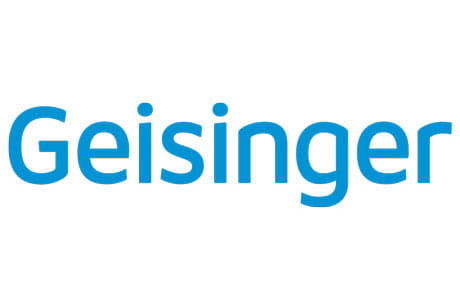Geisinger’s MyCode enrolls more than 250,000 participants
Groundbreaking study provides medically actionable results to nearly 1,500 people
The program has returned medically actionable results to nearly 1,500 people who are at increased risk for potentially life-threatening conditions, like hereditary breast and colon cancers, familial hypercholesterolemia, and heart disease. These results allow patients to work with their care providers to prevent or detect disease in its early stages, leading to better health outcomes.
“Geisinger has reached a major milestone in precision health,” said David H. Ledbetter, Ph.D., executive vice president and chief scientific officer for Geisinger and one of the principal investigators of the MyCode study. “This number of enrolled participants speaks to the trust that our community has in Geisinger’s expertise and the ability we have through this project to make precision health accessible to all of our patients.”
MyCode analyzes DNA samples to look for genes known to increase the risk of developing 35 specific health conditions. These include the BRCA1 and BRCA2 genes known to increase risk for breast and ovarian cancer; as well as genes for familial hypercholesterolemia, which can cause early heart attacks and strokes; Lynch syndrome, which can cause early colon, uterine and other cancers; and several heart conditions, including cardiomyopathy and arrhythmia. In all, MyCode has returned medically actionable results to 1,490 patients.
The project has also identified several genes that can contribute to the development of cognitive disorders. While not always medically actionable, these results can provide valuable information to patients about probable genetic causes for neuropsychiatric conditions like epilepsy, bipolar disorder and depression, as well as learning disabilities and other similar conditions.
“There are a lot of genes that have medical actionability, like finding a change in a gene that causes breast cancer and doing more frequent mammograms as a result,” said Christa Martin, Ph.D., associate chief scientific officer and one of the principal investigators of the MyCode study. “But there are other ones that might not be medically actionable but could have important implications to patients. So, one of our research projects is exploring reporting information back to individuals who have certain brain conditions.”
When given the option to receive test results that included genetic changes that could explain their brain condition, more than 90 percent of patients responded in favor of receiving the results. The majority found the information personally useful to explain medical diagnoses they had been dealing with most of their lives.
“Giving these patients a unifying medical explanation for their multiple, apparently unrelated learning, behavioral and psychiatric conditions had a powerful impact on these patients and their family members,” Dr. Ledbetter said.
About Geisinger
Geisinger is among the nation’s leading providers of value-based care, serving 1.2 million people in urban and rural communities across Pennsylvania. Founded in 1915 by philanthropist Abigail Geisinger, the non-profit system generates $10 billion in annual revenues across 134 care sites - including 10 hospital campuses, and Geisinger Health Plan, with 600,000 members in commercial and government plans. The Geisinger College of Health Sciences educates more than 5,000 medical professionals annually and conducts more than 1,400 clinical research studies. With 26,000 employees, including 1,600 employed physicians, Geisinger is among Pennsylvania’s largest employers with an estimated economic impact of $14 billion to the state’s economy. On March 31, 2024, Geisinger became the first member of Risant Health, a new nonprofit charitable organization created to expand and accelerate value-based care across the country. Learn more at geisinger.org or connect with us on Facebook, Instagram, LinkedIn and X.

For media inquiries:
Ashley Andyshak Hayes
Marketing Strategist
Marketing & Communications
570-271-8081
arandyshakhayes@geisinger.edu
